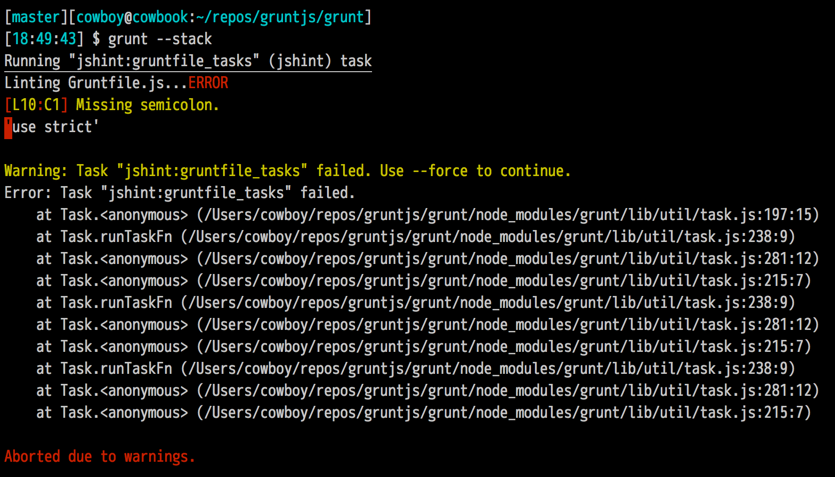-
Notifications
You must be signed in to change notification settings - Fork 1.5k
New issue
Have a question about this project? Sign up for a free GitHub account to open an issue and contact its maintainers and the community.
By clicking “Sign up for GitHub”, you agree to our terms of service and privacy statement. We’ll occasionally send you account related emails.
Already on GitHub? Sign in to your account
Removed --stack option to always print stack traces for errors #864
base: main
Are you sure you want to change the base?
Conversation
|
👍 |
1 similar comment
|
👍 |
|
+1 for Grunt v0.5 :) |
|
FWIW, you can add |
|
@shama it's easier to just |
|
Exactly. The real issue is that we're getting tons of bug reports without Pascal Hartig http://passy.me/ On Wed, Aug 7, 2013 at 9:55 AM, Sindre Sorhus notifications@gh.neting.ccwrote:
|
|
👍 |
|
So here's the problem. How do we know that an error is expected vs unexpected? For example, when a task fails, it's because an exception is thrown—and handled—but thrown nonetheless. In fact, while you can I mean, I could maybe have it auto-dump a stack trace on Any suggestions? |
|
One thought is to look @ the paths in the stack trace, and if any of them exist outside of Grunt or your project's node_modules folder, dump the stack trace automatically. Or something similar. Looking for ideas here, thanks! |
|
I'm stumped |
How about not letting grunt plugin authors throw errors to be caught by Grunt, instead they are forced to use grunt.fail.fatal or done(false)? If an error is throw it is assumed to be unexpected. |
|
+1 forcing plugin authors to grunt.fail |
That should be an unexpected error and logged. Task authors should be encouraged to make a task fail properly without throwing exceptions. Was that the only concern? |
|
👍 |
1 similar comment
|
👍 |

I have seen so much frustration from grunt users not knowing about --stack. I don't see why you wouldn't want to see a stack trace when an error occurs.